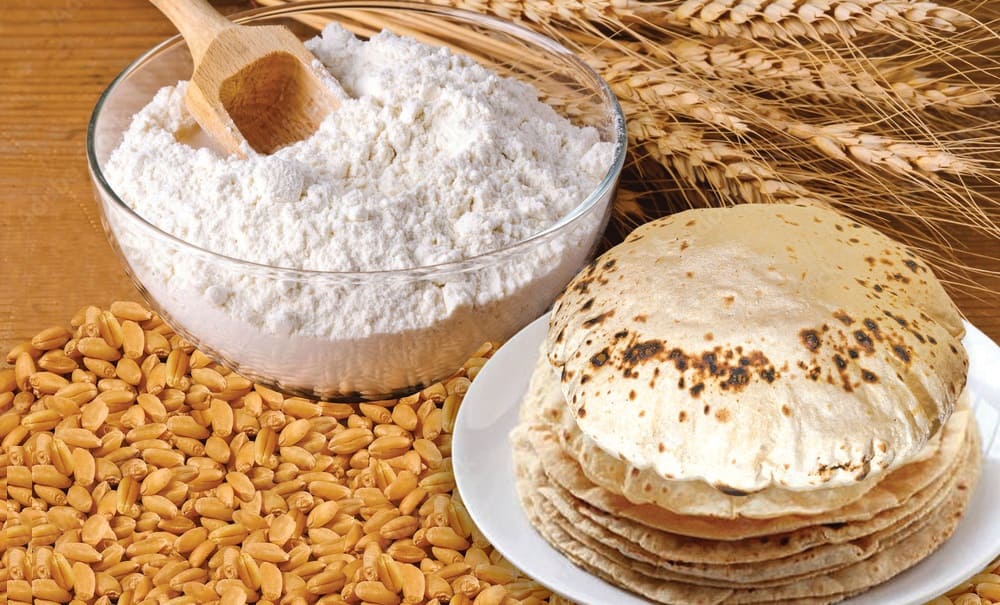Wheat is a staple food for many cultures around the world, forming the base of a variety of delicious foods like bread, pasta, and pastries. But with the rise of gluten-free diets and a general push towards “healthier” grains, wheat has often found itself in the crosshairs of weight-conscious individuals. This begs the question: Does eating wheat really cause weight gain? And what are the actual advantages and disadvantages of consuming wheat? Let’s dive in and uncover the truth from the experts.
Does Eating Wheat Cause Weight Gain?
The short answer is not necessarily. Like any other food, eating wheat doesn’t directly cause weight gain. It all depends on how much and what type of wheat products you consume.
1) Portion Size Matters: Overeating—whether it’s wheat or any other food can cause weight gain. Many wheat-based foods, like bread and pasta, are calorie-dense. This means that they pack a lot of calories in small servings. So, eating a few too many slices of bread or an extra bowl of pasta could add up.
2) Whole Wheat vs. Refined Wheat: Experts agree that not all wheat is created equal. There’s a big difference between whole wheat and refined wheat (which you’ll find in white bread and pastries). Whole wheat is rich in fiber and nutrients, while refined wheat has been stripped of its good stuff during processing. The latter can cause blood sugar spikes, leading to overeating and, eventually, weight gain. Whole wheat, on the other hand, helps you feel fuller for longer, making it less likely you’ll overeat.
3) Blood Sugar and Insulin Response: Refined wheat can cause quick spikes in blood sugar, prompting the body to release insulin. High insulin levels can trigger fat storage, which is why refined wheat often gets blamed for weight gain. However, whole wheat, with its lower glycemic index, does not trigger such dramatic blood sugar spikes.
Advantages of Eating Wheat
Before you start thinking wheat is the enemy, let’s explore why experts still consider whole wheat a healthy choice.
1. Rich in Nutrients
Whole wheat comes with a healthy dose of:
- Fiber: Helps keep your digestion smooth and steady, while also helping to control blood sugar.
- B Vitamins: Important for energy production and supporting brain function.
- Minerals: Like iron, magnesium, and zinc, which are crucial for your body’s daily functions.
2. Great for Heart Health
Whole wheat has been shown to support heart health. The fiber in it helps reduce cholesterol levels, lowering your risk of heart disease and keeping your arteries happy.
3. Supports Good Digestion
Because of its high fiber content, whole wheat is great for your gut. It helps keep things moving along, preventing constipation and supporting overall digestive health.
4. Aiding in Weight Management
Since it’s loaded with fiber, whole wheat can actually help you manage your weight. Fiber makes you feel full for longer, so you’re less likely to reach for a snack shortly after a meal. Studies have shown that people who eat whole grains, like whole wheat, tend to have a healthier body weight.
Disadvantages of Eating Wheat
Like anything, wheat has its downsides, especially when consumed in the wrong form or in excess. Here’s what to look out for.
1. Gluten Sensitivity
The most talked-about downside to wheat is gluten. Gluten is a protein found in wheat, and for some people, it can cause real problems. If you have Celiac disease or gluten sensitivity, eating wheat could lead to unpleasant symptoms like bloating, fatigue, and digestive discomfort.
2. Overconsumption of Refined Wheat
Many wheat products, especially those made from refined grains (think white bread, pastries, and sugary cereals), are stripped of their nutrients and packed with empty calories. These foods can spike your blood sugar, leaving you hungry and craving more shortly after eating—making it easy to overeat and gain weight.
3. Blood Sugar Spikes
Refined wheat has a high glycemic index. This means it can cause your blood sugar to rise quickly, leading to energy crashes later. For people with diabetes or those looking to avoid sugar highs and lows, this can be problematic.
4. Digestive Issues for Some
Even for people without gluten sensitivity, wheat can sometimes cause digestive discomfort. If you find yourself feeling bloated or gassy after a wheat-heavy meal, you might want to cut back or switch to whole wheat options to see if that helps.
Expert Advice: Should You Avoid Wheat?
Experts generally agree that you don’t need to avoid wheat, but you should be mindful of how much you eat and what kind.
- Choose Whole Wheat: Whole wheat is always a better choice than refined wheat. It’s richer in fiber and nutrients, and it doesn’t cause the same blood sugar spikes that refined wheat does.
- Keep Portions in Check: Eating too much of any food, wheat included, can lead to weight gain. Be mindful of how much wheat-based foods you’re eating in a day.
- Balance It Out: Mix things up! Don’t rely solely on wheat. Try other whole grains like quinoa, brown rice, and barley to give your body a variety of nutrients.
Conclusion:
Eating wheat won’t automatically make you gain weight. Like with anything, it’s about balance and making smart choices. Whole wheat offers numerous benefits, from supporting heart health to aiding in weight management, thanks to its high fiber content. On the flip side, refined wheat products can lead to blood sugar spikes and overeating, so it’s best to limit those.
If you’re concerned about weight gain, gluten sensitivity, or digestive issues, focus on incorporating more whole grains into your diet and cutting back on refined wheat products. By eating wheat in moderation and making conscious choices, you can enjoy the benefits while minimizing the downsides.
As always, listen to your body and pay attention to how it reacts to different foods. After all, finding the right balance is key to living your healthiest life.
Also Read:
